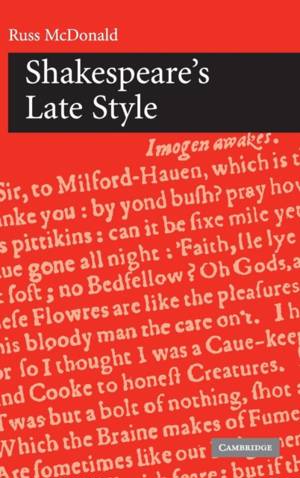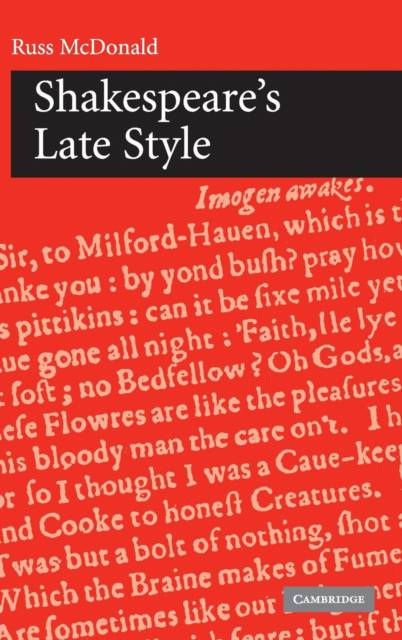
Door een staking bij bpost kan je online bestelling op dit moment iets langer onderweg zijn dan voorzien. Dringend iets nodig? Onze winkels ontvangen jou met open armen!
- Afhalen na 1 uur in een winkel met voorraad
- Gratis thuislevering in België vanaf € 30
- Ruim aanbod met 7 miljoen producten
Door een staking bij bpost kan je online bestelling op dit moment iets langer onderweg zijn dan voorzien. Dringend iets nodig? Onze winkels ontvangen jou met open armen!
- Afhalen na 1 uur in een winkel met voorraad
- Gratis thuislevering in België vanaf € 30
- Ruim aanbod met 7 miljoen producten
Zoeken
Omschrijving
When Shakespeare gave up tragedy around 1607 and turned to the new form we call romance or tragicomedy, he created a distinctive poetic idiom that often bewildered audiences and readers. The plays of this period, Pericles, Cymbeline, The Winter's Tale, The Tempest, as well as Shakespeare's part in the collaborations with John Fletcher (Henry VIII and The Two Noble Kinsmen), exhibit a challenging verse style - verbally condensed, metrically and syntactically sophisticated, both conversational and highly wrought. In Shakespeare's Late Style, McDonald anatomizes the components of this late style, illustrating in a series of topically organized chapters the contribution of such features as ellipsis, grammatical suspension, and various forms of repetition. Resisting the sentimentality that frequently attends discussion of an artist's 'late' period, Shakespeare's Late Style shows how the poetry of the last plays reveals their creator's ambivalent attitude towards art, language, men and women, the theatre, and his own professional career.
Specificaties
Betrokkenen
- Auteur(s):
- Uitgeverij:
Inhoud
- Aantal bladzijden:
- 272
- Taal:
- Engels
Eigenschappen
- Productcode (EAN):
- 9780521820684
- Verschijningsdatum:
- 4/09/2006
- Uitvoering:
- Hardcover
- Formaat:
- Genaaid
- Afmetingen:
- 163 mm x 234 mm
- Gewicht:
- 553 g

Alleen bij Standaard Boekhandel
+ 345 punten op je klantenkaart van Standaard Boekhandel
Beoordelingen
We publiceren alleen reviews die voldoen aan de voorwaarden voor reviews. Bekijk onze voorwaarden voor reviews.











